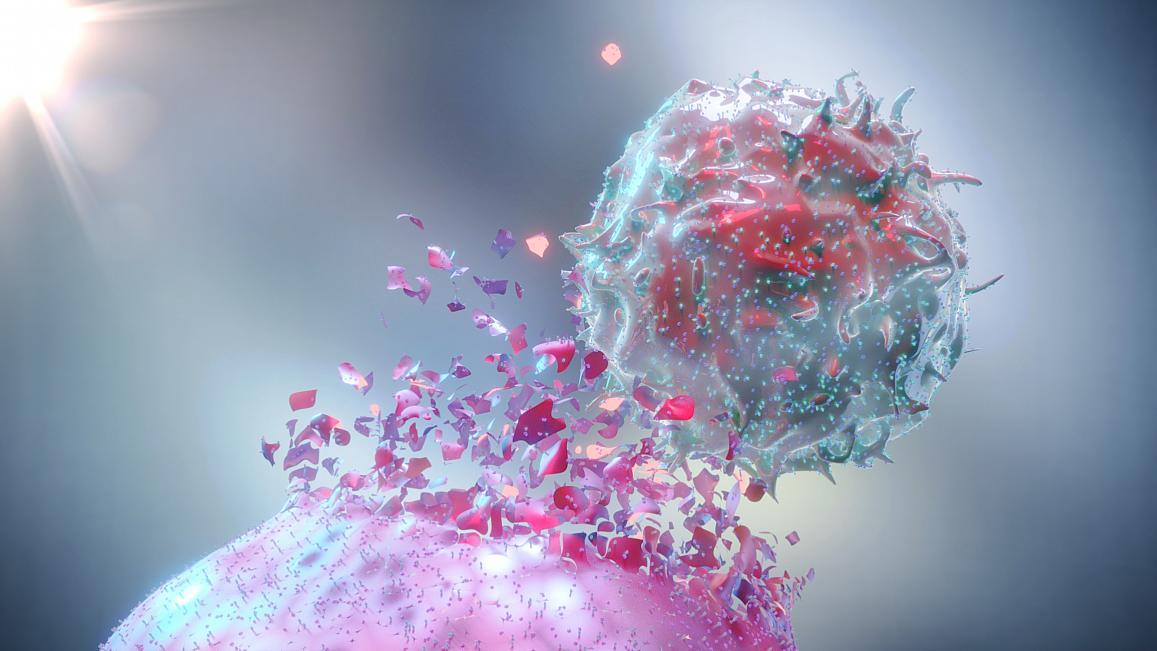The Intricate Interplay between Innate Immunity and Pancreatic Cancer

Pancreatic cancer is a formidable challenge, characterized by its late-stage diagnosis, aggressive nature, and limited treatment options. The immune system, particularly innate immunity, has emerged as a pivotal player in cancer development, progression, and response to therapy. In recent years, researchers have been delving into the intricate interplay between innate immunity and the onset and development of pancreatic cancer, seeking to unveil the underlying mechanisms, identify potential therapeutic targets, and improve patient outcomes.
Innate Immunity at a Glance: Innate immunity represents the body’s first line of defense against various pathogens, regardless of their specific identity. Comprising a variety of physical, chemical and cellular elements, innate immunity provides rapid and non-specific responses to threats. Physical barriers, such as skin and mucous membranes, prevent the entry of pathogens, while chemical defenses, such as antimicrobial proteins and enzymes, act as front-line sentinels. Cellular elements, such as macrophages, neutrophils, and dendritic cells, contribute to the identification, engulfment, and elimination of potential threats. Inflammation, orchestrated by innate immune responses, helps mobilize immune cells to the site of infection or injury. However, beyond its role in fighting infections, innate immunity is now recognized as a crucial participant in the intricate “dance” with cancer.
Innate immunity and pancreatic cancer interact or are linked at different levels:
- Inflammation and Tumor Microenvironment: Chronic inflammation of the pancreas, often associated with conditions such as chronic pancreatitis or obesity, can contribute to the development of pancreatic cancer. Innate immune cells are involved in the inflammatory response and can promote the release of signaling molecules that support tumor growth and progression.
- Immune Surveillance: Innate immune cells, such as macrophages and dendritic cells, are responsible for recognizing and eliminating abnormal cells, including cancer cells. However, in pancreatic cancer, immune cells do not always effectively target cancer cells, allowing them to proliferate.
- Tumor-Associated Macrophages (TAMs): Macrophages that infiltrate the tumor microenvironment are known as TAMs. These cells can have both pro- and anti-tumorigenic functions. Some TAMs can promote cancer growth by producing factors that support tumor survival and progression.
- Natural Killer (NK) Cells: NK cells are a type of innate immune cell that can recognize and destroy cancer cells. However, in pancreatic cancer, the tumor microenvironment can suppress NK cell activity, limiting their effectiveness.
- Cytokines and Chemokines: Innate immune cells release various signaling molecules known as cytokines and chemokines. These molecules can influence tumor growth, immune responses, and the recruitment of immune cells to the tumor site.
- Dysfunctional Immune Response: In pancreatic cancer, there may be an imbalance in the immune response, with immune cells often unable to effectively target and eliminate cancer cells. This can allow the cancer to grow and spread.
- Immunosuppression: Pancreatic cancer cells can create an immunosuppressive microenvironment, which attenuates the immune response and prevents immune cells from effectively targeting the cancer. This can hinder the ability of innate immune cells to recognize and eliminate cancer cells.
Research into the interactions between innate immunity and pancreatic cancer is ongoing, and scientists are investigating ways of harnessing the potential of the immune system to improve cancer treatments. Immunotherapies that aim to modulate the immune response, including checkpoint inhibitors and adoptive T cell therapies, are being explored as potential treatments for pancreatic cancer. It’s important to note that the relationship between immunity and cancer is intricate and can vary according to individual cases and tumor characteristics. Progress in understanding these interactions, notably through the identification and use of biological data (genomics, transcriptomics…) could thus lead to better diagnostic strategies, targeted therapies or immunotherapies, with the aim of maximizing the chances of success of future clinical trials.

